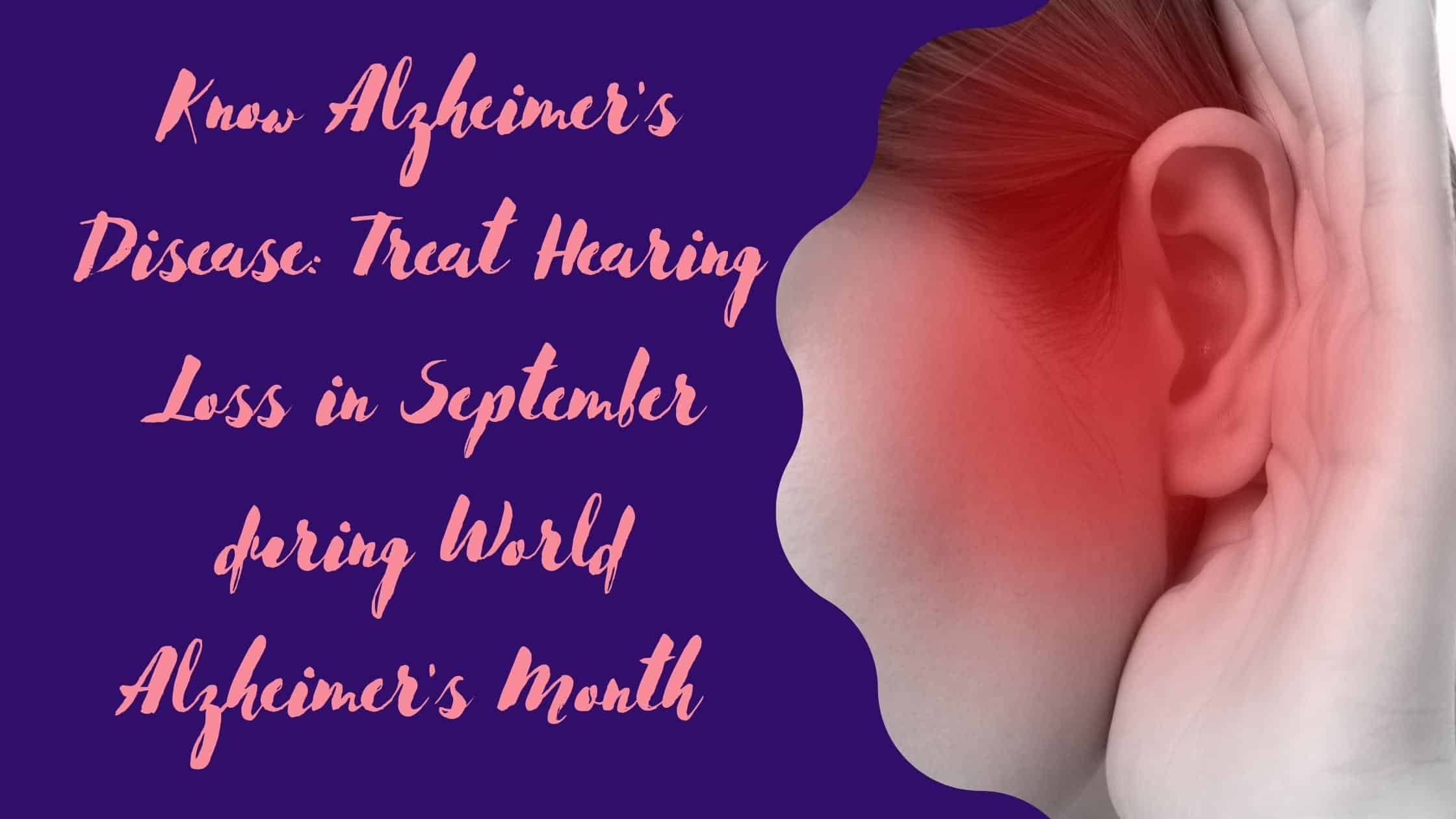Every September, we take the month to honor World Alzheimer’s Month. If you have a loved one with Alzheimer’s or another form of dementia, you are well-aware of the transformation it can bring to the entire family and community. Not only does the cognitive condition change reality for the person who has the diagnosis, but caregivers often find their lives turned upside down. In fact, it is estimated that 11 million people are providing unpaid care to someone with Alzheimer’s in the United States alone.
While specialists and researchers search for a cure or lasting treatment for Alzheimer’s disease, steps can be taken to reduce your risk of experiencing dementia down the road. Several key lifestyle behaviors have been tied to lower or higher rates of dementia in these populations. One of the groups that has been shown to have disproportionately higher rates of dementia, including Alzheimer’s disease, are those with untreated hearing loss.
This year in World Alzheimer’s Month, why not take the opportunity to think about the way that hearing loss might contribute to your likelihood of developing dementia down the road. When we consider the effects of untreated hearing loss, we are more likely to pursue treatment as soon as it becomes necessary.
Alzheimer’s Risk Factors
Untreated hearing loss is not alone among the risk factors for dementia, including Alzheimer’s disease. The Alzheimer’s Association International Conference published a list of twelve well-known risk factors for the condition, including untreated hearing loss. In addition to that established relationship, others included excessive alcohol consumption, head injury, exposure to air pollution, hypertension, lower education, smoking, obesity, depression, physical inactivity, diabetes, and social isolation.
As you can see, some of these conditions are related to one another. For example, lifestyle factors can contribute to hypertension, obesity, social isolation, and depression at the same time. You also might note that some of these conditions are under individual control, while others are up to community influence. For instance, an individual can have some impact over habits like smoking and excessive drinking, while the community is responsible for reducing levels of air pollution and raising education levels. When we think about the risk factor of untreated hearing loss, it seems to fit into both categories.
Community Action for Hearing Treatment
At the community level, there are steps we can take to promote better hearing. In the first place, prevention efforts can go a long way. One of the greatest risks of hearing loss today is the use of recreational devices such as headphones and earbuds. Regulating the maximum decibel level of these devices might prevent undue noise-induced hearing loss and a higher risk of Alzheimer’s disease.
Another type of community prevention is to provide hearing protection in the workplace. Particularly for those whose employers are not following the guidelines of the Occupational Safety and Health Administration (OSHA), the community can step in and make sure that employees are getting the protection they need. Communities can also advocate for access to treatment, such as hearing aids and other assistive devices.
Individual Action for Hearing Treatment
Although the community can do a lot to help prevent and treat hearing loss, leading to ripple effects of lower risk of Alzheimer’s disease, individuals are often responsible for taking the step to pursue treatment.
Individuals have a wide range of reasons for putting off or resisting treatment, but none of these lines of reasoning can explain away the higher risk of Alzheimer’s. When we continue to struggle to communicate with reduced hearing ability, it seems to create an unbearable cognitive load on not only the auditory cortex of the brain but on other regions of the brain that are normally devoted to complex thought.
The good news is that treatment for hearing loss can restore communication ability, reducing the mental fatigue that comes from that struggle to make out what others say. As an individual, it is time to make a commitment that when the time comes you will seek out treatment for hearing loss. You will not only be promoting your own wellbeing and relationships, but you will also be reducing your risk of contracting Alzheimer’s disease down the road.

